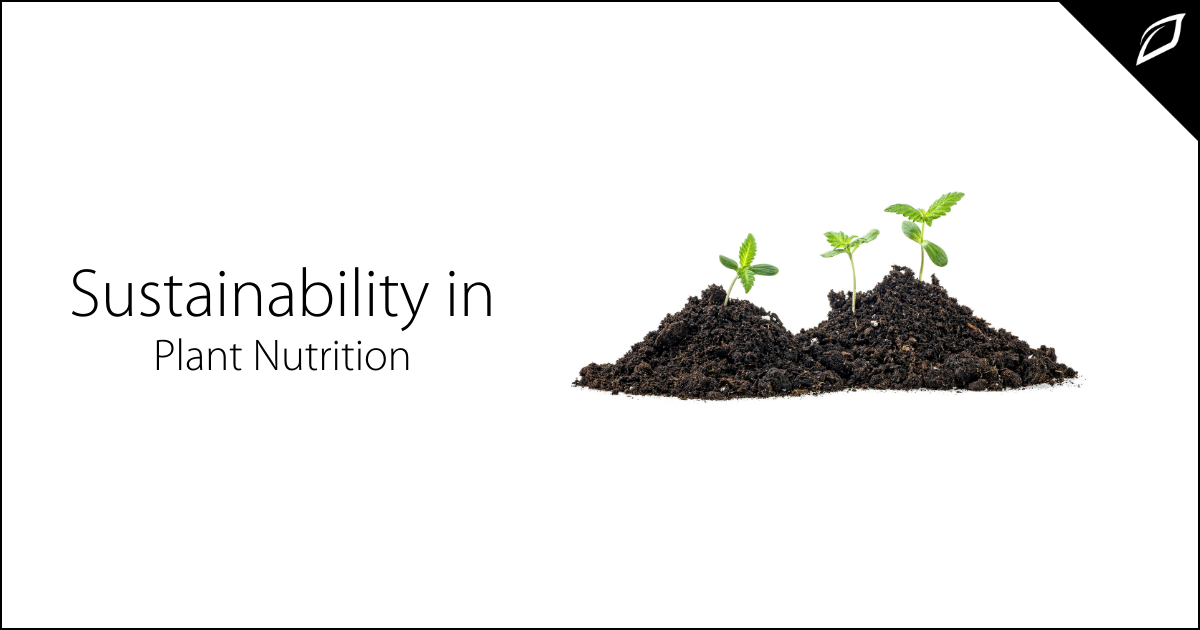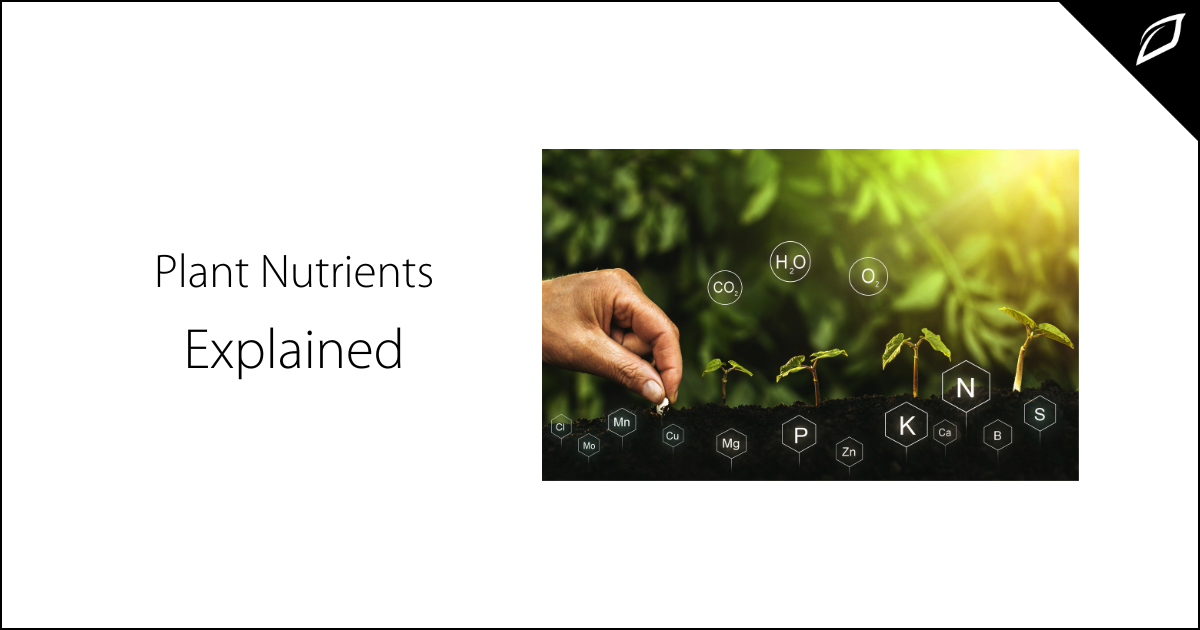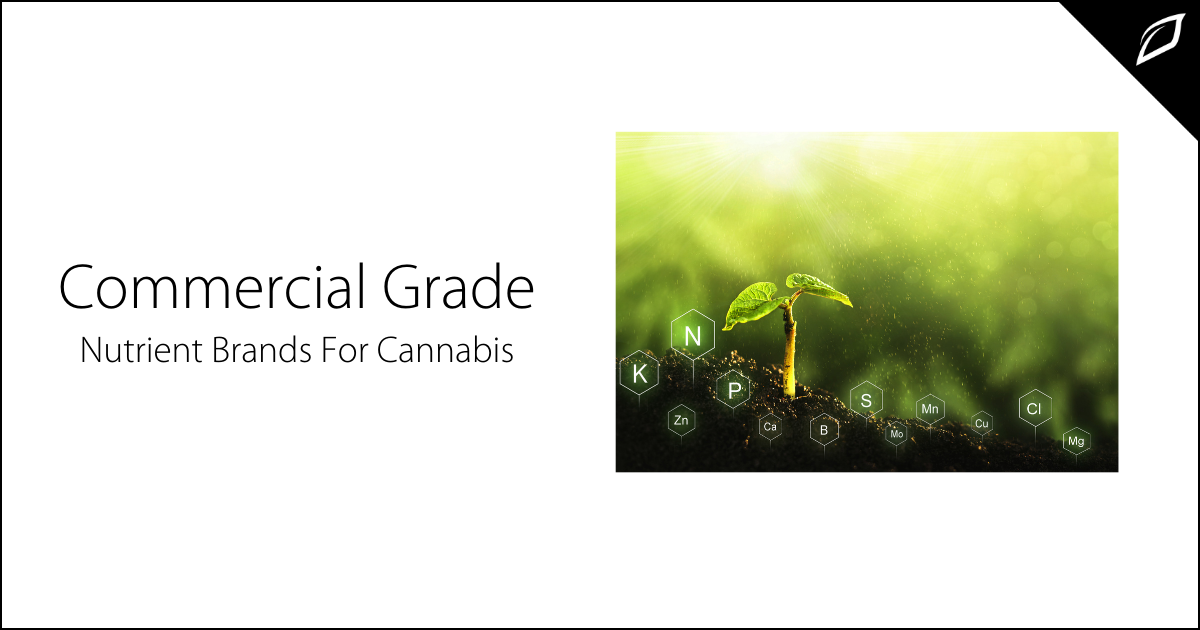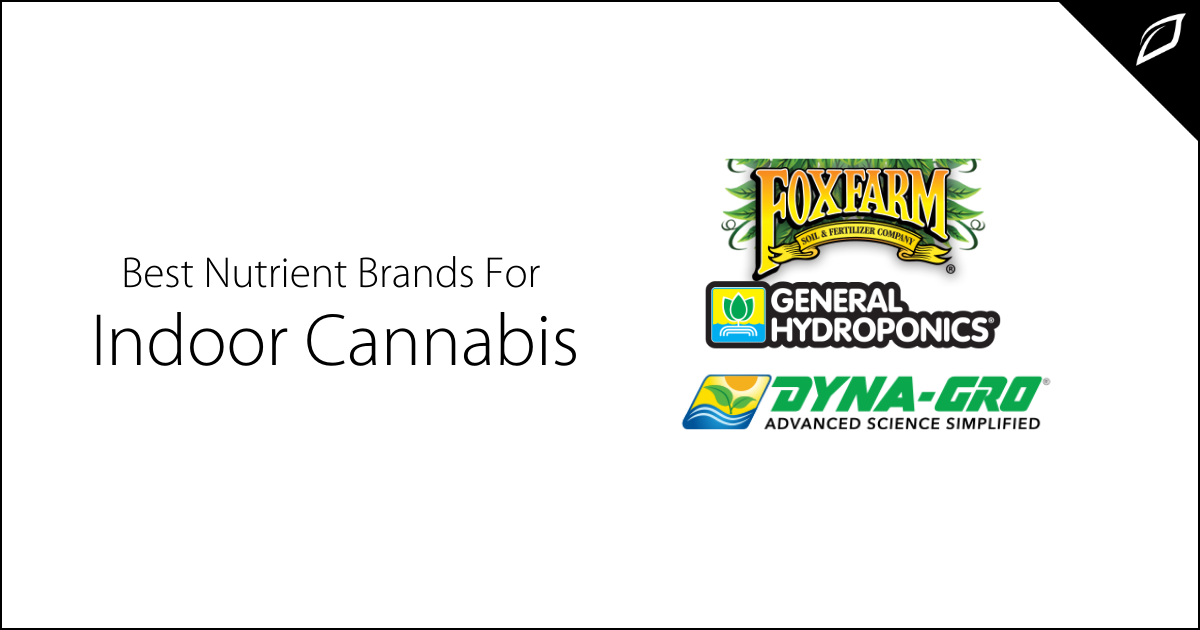Plant Nutrients Explained
While most nutrient manufacturers already go through the legwork of mixing properly balanced nutrient blends for your plants, it is important to...
2 min read
Joy King : Updated on May 10, 2022

Have you considered the nutrient source you are feeding your plants? There are so many things to consider when planning your grow strategy, and nutrients play a significant role in the success of your plan. The two primary sources of fertilizer or nutrients are organic or synthetic. It can be further broken down as either plant or animal-sourced nutrients. Deciding whether to use plant or animal-based products can be based on price, plant yields, absorption rates, your personal preference, or any combination of criteria. Sustainability may not play a part in your decision, but maybe it should. Let's examine the most current research to get to the heart of plant nutrition basics around sustainability.
What are plant nutrients?
Plant nutrients provide crops with vital nutrients required for optimal health. According to Wikipedia, a fertilizer is any material of natural or synthetic origin applied to soil or plant tissues to supply plant nutrients. With the popularity of indoor growing and hydroponics, the demand for plant nutrients has bloomed.
Plant or Animal-based?
There are numerous sources of organic-based nutrients. The organic nature of plant nutrients means they must come from living things, typically animal or plant waste.
Most fertilizers or nutrients clearly indicate the source on product packaging. Whether it's bat guano, fish fertilizer, or kelp meal, it's pretty easy to determine the source. Bat guano is, as it sounds, manure derived from bats. Fish fertilizer is fish remains that have been broken down, and kelp meal is processed seaweed. There are many others, but you get the idea.
Nutritional Options
Some growers suggest that feeding your crops plant-derived nutrients is the best way to go, while others maintain that animal-based is superior.
Plant nutrient supporters point to compounds within fertilizers like amino acids that mimic the plants you are feeding. Many growers support organic farming for environmental reasons. Using plant-based fertilizer leaves a greener footprint and does not support factory farming of animals, which some people have a strong opinion on.
To determine whether animal or plant-based fertilizers are more beneficial, we need to compare them at the plant level. First, examine which source provides the most bioavailability of the nutrients. Meaning how much nitrogen did your plants absorb versus how much you fed them. Some studies support plant-based nutrients over animal products, but they're relatively difficult to find. What isn't hard to find is research papers on sustainability in farming.
Sustainability in Growing
Researchers at the University of Oxford published a study on sustainability. One of the most comprehensive analyses to date of the destruction our current farming practices is doing to the planet. They advocate avoiding animal products entirely to lessen greenhouse gases and end factory farming of animals. They also recommend vegan or vegetarian diets for humans to save the planet and reduce our environmental impact on the planet. That seems unlikely, but by using plant-based nutrients, you can help do your part. And still, enjoy healthy plants and large yields.


While most nutrient manufacturers already go through the legwork of mixing properly balanced nutrient blends for your plants, it is important to...

Plant nutrients or fertilizers mimic the natural nutrients found in healthy soil, often with some added benefits. Since growing cannabis indoors is...

Plant nutrients or fertilizers mimic the natural amount of nutrients found in soil, often with some added benefits. Since growing cannabis indoors is...